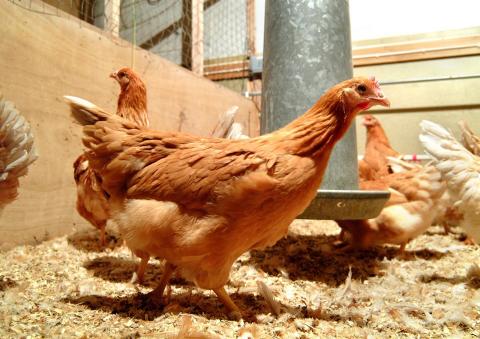A new study found the drugs work at least as well as the same proteins produced using existing methods and high quantities of the proteins can be recovered from each egg using a simple purification system and there are no adverse effects on the chickens themselves, which lay eggs as normal.
Protein-based drugs, which include antibody therapies such as Avastin and Herceptin, are widely used for treating cancer and other diseases. Just three eggs were enough to produce a clinically relevant dose of the drug. As chickens can lay up to 300 eggs per year, researchers say their approach could be more cost-effective than other production methods for some important drugs.

Credit: Norrie Russell, The Roslin Institute
The team have initially focused on two proteins that are essential to the immune system and have therapeutic potential - a human protein called IFNalpha2a, which has powerful antiviral and anti-cancer effects, and the human and pig versions of a protein called macrophage-CSF, which is being developed as a therapy that stimulates damaged tissues to repair themselves.
Goats and rabbits can also produce protein therapies in their milk or eggs
Scientists have previously shown that genetically modified goats, rabbits and chickens can be used to produce protein therapies in their milk or eggs. The researchers say their new approach is more efficient, produces better yields and is more cost-effective than these previous attempts.
The study is proof of concept that the system is feasible and could easily be adapted to produce other therapeutic proteins. For some proteins, the only way to produce them with sufficient quality involves mammalian cell culture techniques, which are expensive and have low yields. Other methods require complex purification systems and additional processing techniques, which raise costs.






Comments